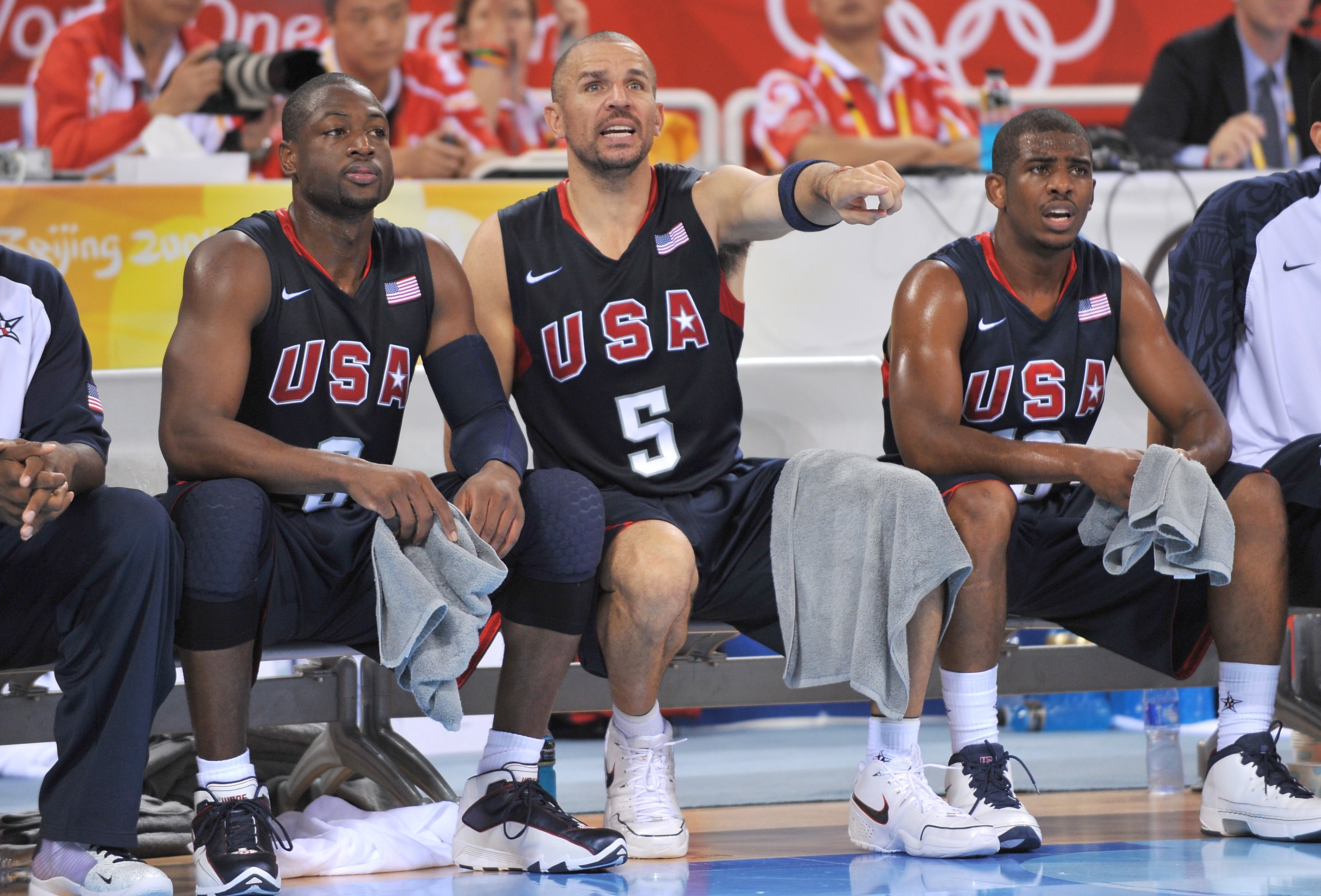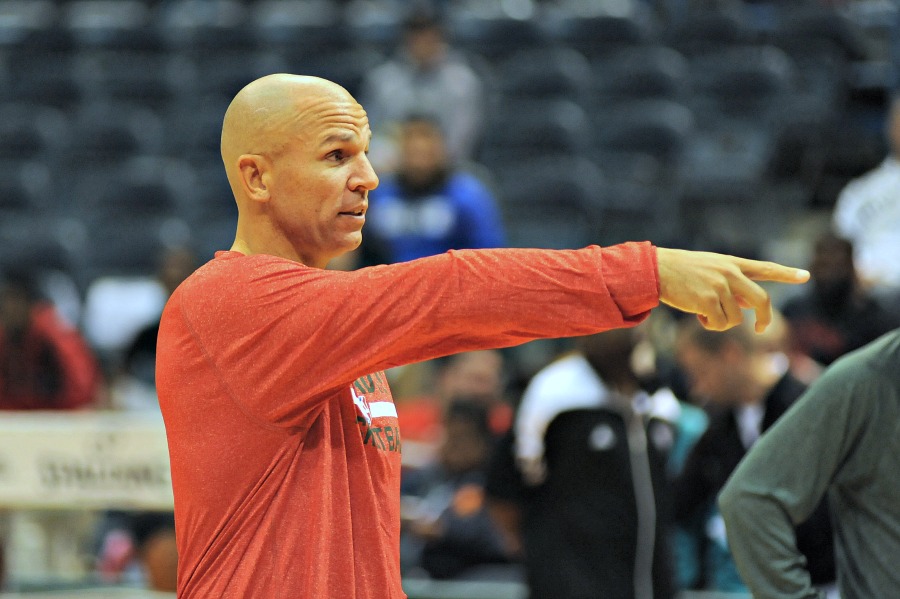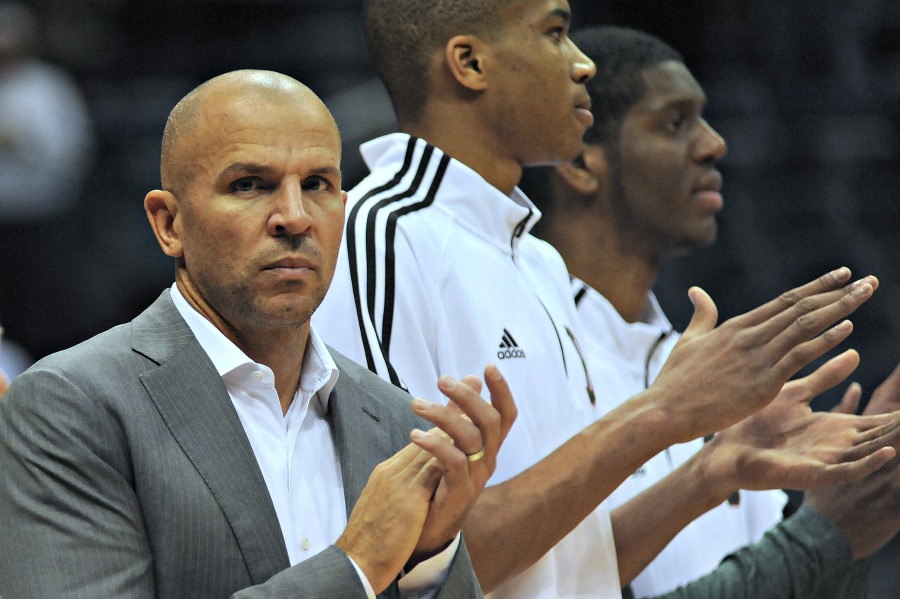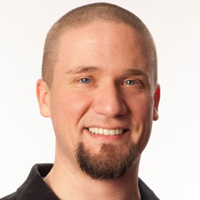Las Vegas isn’t a bad place to spend a summer. It’s not particularly known for growing things, however. It’s hot. Arid. Growing and blooming aren’t verbs often associated with that climate.
But, it is known for the tear down of outdated edifices, and the immediate rebuild to something bigger, and better.
In 2008, Mike Krzyzewski, a Hall of Fame coach at Duke University, was tasked to combine the organic nature of team building between disparate – and dominant – personalities, while breaking down and reconstructing the once powerful monolith that was USA Basketball.
After a disappointing bronze medal in the 2004 Olympics, Krzyzewski was hired to fix it, to build a team. He was successful, too, in his first two seasons as the head coach of the U.S. men’s national team. But an Olympic summer is far different from those where "only" world championships on the line – especially as Team USA headed to Beijing, China, for the Summer Games.
That squad was dubbed the "Redeem Team," a collection of talent put together with the sole purpose of re-establishing American dominance on the global stage. There was intense pressure.
LeBron James, Dwyane Wade and Chris Bosh began their first turn as teammates at the 2006 FIBA World Championships, along with Chris Paul, Dwight Howard and Carmelo Anthony. A 28-year-old Kobe Bryant joined the team in the summer of 2007 for the FIBA Americas Championship, as did Milwaukee Bucks guard Michael Redd and 34-year-old point guard Jason Kidd.
Kidd was by far the oldest player on a roster that Krzyzewski designed to be younger, fresh – dominant. But his role was vital.
As the only player over 30, and he was brought in by Krzyzewski for an explicit reason.
"He was the guy that ‘coach K’ relied on to be his messenger from a player’s perspective, and that’s a lot like being a coach, is being the guy who’s communicating the mission," said Marquette head coach Steve Wojciechowski, an assistant on that team. "From a player’s standpoint, making sure everybody’s on the same page."
Kryzewski leaned on his veteran point guard. Kidd was not only welcomed into coaching meetings, but prodded by Krzyzewski. How do you manage so many great players? And how do you make James and Bryant not only coexist, but function together to put a championship team on the court.
It was Kidd who advised Krzyzewski on how intense, how long practices should be at the Cox Pavilion on the campus of UNLV. He also suggested that the best lineup not be grouped together.
"Keep the two alpha dogs separate, throw the ball up and you’ll get as a competitive practice as you want," Kidd said with a smile.
But Kidd was learning, too.
With first-hand experience, he saw how Krzyzewski included every member of the team in its development. He saw the effort made to get to know each player, to not only form a personal relationship, but to adapt his coaching style to best put those players in a position to win.
And, even though Kidd was a starter, he played the fewest minutes of any on that run to the gold medal. His stat line was just 1.6 points and 2.0 assists. By the numbers, he was a role player – perhaps for the first time in his basketball life – but he felt included. Important.
Part of a champion.
"Coach K is the best at defining roles and having guys experience that and being able to flourish in that," Kidd said.
It also planted a seed that wouldn’t bloom until five years later.
"It was an honor," Kidd said of the experience. "You’re talking about one of the greatest coaches, coach K, and his staff, asking me to help with the younger guys. Being a player, but also there is no ego in this – that was my job (that) they asked me to do and I was there to do that. That kind of led me down the road to understanding what it means to be a coach. Also, understanding the trust of players, giving them the responsibility to help other players. It’s not always the coach that’s screaming and yelling, but players coach themselves and help themselves.
"That was kind of the start of everything."
When he retired at the age of 40 in 2012, Kidd moved immediately to the bench as Brooklyn’s head coach in 2013. It surprised some, but not all.
"I’m sure he thought he was going to play forever," Wojciechowski said with a smile. "The point guard is essentially – should be – a coach on the floor, and he was such a cerebral guy that you could always see in his future somebody who was going to be a coach."
The Fist

Garrett Ellwood/USA Basketball
In the White House Rose Garden, President Barack Obama welcomed the 2010 Duke University Blue Devils as the reigning NCAA champions. The team was lined behind the President, in front of the colonnades, with Krzyzewski to his right, Wojciechowski on his left.
In his address to the team, President Obama referenced am oft tried, and often proven true, coaching philosophy of Krzyzewski.
"’Think of a hand,’" the President said. "If you attach – if you attack with your hand open, as five fingers individually, you’re more likely to break a finger. But if you bring them together and make a fist, you can pound really somebody."
The quip drew laughter, but it was a lesson Kidd learned in team building in 2007 and 2008 from the coach – and one of many he has brought with him to Milwaukee.
That, the relationship building and family-based concepts Krzyzewski and his Duke coaching family holds so dear.
"Yeah, most definitely," said Bucks first round pick Jabari Parker, who played under Krzyzewski last year before the Bucks selected him No. 2 overall this summer. "Even with his staff. The team psychologist, he’s out there rebounding for us. We have a lot of our (front office is out) during our practices and helping us out. It’s really coming together. His mentality is trust. That’s something that stood out both from Duke and this organization. It’s pretty much the same, that togetherness, that family oriented environment."
The day before leaving Milwaukee for Charlotte and tonight’s home opener – the team had to fly out before President Obama flew in for a political rally and private fundraiser – Kidd met the local media to talk about patience, pressure, and a young team.
Off to the side, new point guard Kendall Marshall leaned against the wall next to the team’s locker room. Just 23 years old, Marshall is already on his third NBA team and head coach, with two stops in the NBA Developmental League in-between. He’s also a North Carolina guy, a 2012 Bob Cousy Award winner as the top point guard in the country.
"He preaches family every single day, to lean on each other, depend on each other, whether it be off the court, whether it be defensively, knowing you man’s going to help, whether it be offensively and knowing your teammate’s going to make that extra pass," Marshall said.
"He’s big on trusting each other and building that family atmosphere."
As he talked about Kidd’s patience with the young team – the Bucks’ average age on opening night is 23.6 years old – and how the coach’s emphasis on teaching surprised him,
Marshall lifted his hands …
"It’s the offense, the defense, the way we’re teaching it, we all have to all work together …"
He spread his fingers, then fit them together.
"If it all looks good on the court, if we play together, things will take care of themselves. That’s the main thing, that I think‘s been great for us that I got from coach."
He had won everywhere he played in 19 seasons on the court, and led a veteran Brooklyn team to the second round of the playoffs after a poor start last year.
Could he handle a young team? Could he deal with losing, with rebuilding, with mistakes?
At various summer functions and at media day at the start of training camp, his new players were asked what it would be like to have a future Hall of Famer directing them, what they expected out of a man most grew up watching.
They were necessary questions, but nearly unfair – how can you predict the future?
As the season begins tonight, the team, and the coach, have a better handle on one another.
"He’s definitely teaching basketball, but you know what it feels like? Like, honestly? It feels like he’s one of the veteran players," said shooting guard O.J. Mayo, who is entering his seventh season and is one of several members of the Bucks who played against Kidd.
"You know what I mean? The things he sees are … I’m pretty sure what coaches see, and maybe explain it in a coach’s form, but he explains it as the sixth guy, the seventh guy, the vet that’s on the way out but still holding it down and being positive and helping out the locker room. He’s all that in one. It’s kind of a unique situation because he’ll see a play three or four plays ahead and he’ll tell you watch for it. Then you see it, it works, you’re like god dog, how did he see that? As players you want to see it because you’re playing, you know what I mean? So, it kind of all works hand in hand I think."
Giannis Antetokounmpo, one of three teenagers on the roster and a unique talent Kidd will have to develop, immediately bonded with his new coach, citing the fact that Kidd will stop practice to run a correction – or to explain other options and scenarios – as well as speak with players individually.
Zaza Pachulia, the "old man" on the team at 30 years old and entering his 12th season, also appreciates that personal style as well. He appreciates the leadership, the teaching – and the ball-sharing offense and team-oriented defensive concepts Kidd and his staff have brought in.
The big man is one of several on the team who wished to have played with Kidd, and watched with respect from afar.
But in the end, the roles in Milwaukee are clearly defined.
"You have to be professionals, disciplined, when he’s saying something to listen and learn. Bottom line," Pachulia said. "He’s the coach, you’re the player."
This is only Kidd’s second season as a head coach, and he admits he is learning along with his team. He said he’s talked to other coaches, re-evaluated his performance in Brooklyn, and has taken a realistic look at this year’s team.
The Bucks won 15 games a year ago. Perhaps they can double that total this year. It’s not winning basketball, per se, but it would follow a trend. At nearly every stop, beginning with his rookie year in Dallas in 1994, the new team he joins improves dramatically.
"I think that he’s a winner," Bucks co-owner Marc Lasry said. "The players know him and the players respect him, but more than that, one of the things that we wanted was somebody whose won and understands what it takes to win. And, that’s sort of how we run our organization and that’s what we wanted to have here."
It will take time, however. But, much is changing in and around the Bucks organization. An old edifice may be torn down, for something newer, better. A team with a very young core, a group with untapped potential, needs to be watered in order to reach full bloom.
"They’re competing, they’re working hard, they’re playing for another – that trust has been built," Kidd said. "But we still have a long ways to go. We’re going to make mistakes. But guys come to work to every day to get better. So, from day one, we would be happy with the progress that we started with in training camp and we’ve got to carry that throughout the season."
The coach

In his introductory press conference at the BMO Harris Bradley Center this summer, much of the conversation centered around his controversial arrival to Milwaukee, by trade, in a negotiation begun by ownership.
Trust is there

Jim Owczarski is an award-winning sports journalist and comes to Milwaukee by way of the Chicago Sun-Times Media Network.
A three-year Wisconsin resident who has considered Milwaukee a second home for the better part of seven years, he brings to the market experience covering nearly all major and college sports.
To this point in his career, he has been awarded six national Associated Press Sports Editors awards for investigative reporting, feature writing, breaking news and projects. He is also a four-time nominee for the prestigious Peter J. Lisagor Awards for Exemplary Journalism, presented by the Chicago Headline Club, and is a two-time winner for Best Sports Story. He has also won numerous other Illinois Press Association, Illinois Associated Press and Northern Illinois Newspaper Association awards.
Jim's career started in earnest as a North Central College (Naperville, Ill.) senior in 2002 when he received a Richter Fellowship to cover the Chicago White Sox in spring training. He was hired by the Naperville Sun in 2003 and moved on to the Aurora Beacon News in 2007 before joining OnMilwaukee.com.
In that time, he has covered the events, news and personalities that make up the PGA Tour, LPGA Tour, Major League Baseball, the National Football League, the National Hockey League, NCAA football, baseball and men's and women's basketball as well as boxing, mixed martial arts and various U.S. Olympic teams.
Golf aficionados who venture into Illinois have also read Jim in GOLF Chicago Magazine as well as the Chicago District Golfer and Illinois Golfer magazines.







